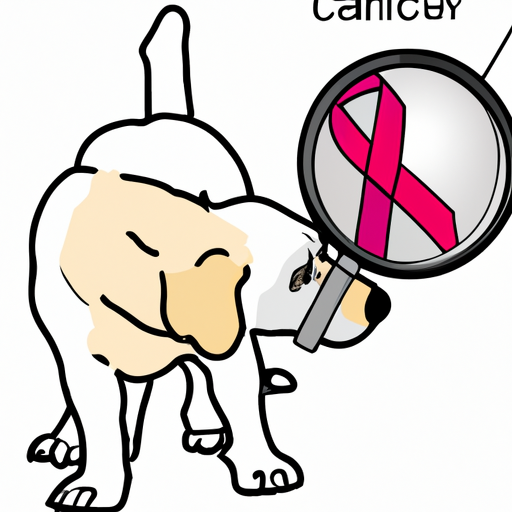“`markdown
What do Dogs do When They Smell Cancer?
Understanding the Canine Sense of Smell
You’ve probably noticed how your four-legged friend has an uncanny knack for sniffing out hidden treats or detecting intruders from miles away. The canine sense of smell is incredibly powerful, exponentially more so than our own. To put it into perspective:
- A human has about 5 million scent receptors.
- A dog, on the other hand, has up to 300 million!
This remarkable olfactory ability allows dogs to detect subtle changes in the human body, including those associated with cancer.
How Dogs Detect Cancer
When your body is healthy, it has a particular scent. However, diseases like cancer can change your body’s smell. Scientists believe that malignant tumors release specific compounds not present in healthy tissues, and dogs can detect these compounds.
- Training: Dogs aren’t born with the ability to identify cancer but they can be trained to do so. This training usually takes several weeks and involves the dog being exposed to samples from cancer patients and non-cancer patients.
- Accuracy: Studies have shown that trained dogs can detect cancer with an accuracy rate of up to 98%. However, it’s important to remember that a dog’s ability to smell cancer doesn’t replace medical tests and examinations.
The Role of Cancer-Sniffing Dogs in Healthcare
While this is a fascinating field of study, it’s currently more of a scientific curiosity than a practical diagnostic tool. There are several reasons for this:
- Reliability: Dogs can get tired or distracted, which could affect their accuracy.
- Standardization: There’s currently no universal standard for training dogs to detect cancer.
- Cost and Time: Training dogs to sniff out cancer is expensive and time-consuming.
However, these dogs still play a crucial role in advancing our understanding of cancer and could potentially lead to the development of new diagnostic tools.
| Pros | Cons |
|---|---|
| Non-invasive | Not 100% reliable |
| Potentially fast | Costly |
| Can detect early stages | Lack of standardization |
The Future of Canine Cancer Detection
The future of canine cancer detection is promising. Research is ongoing to better understand the specific compounds dogs detect, with the hope of developing an “electronic nose” that could replicate a dog’s sense of smell. While you can’t bring your dog to your next check-up, their incredible ability could inspire the next generation of cancer detection tools.
Frequently Asked Questions
Q: Can my pet dog smell cancer?
A: While dogs have an exceptional sense of smell, not all dogs can detect cancer. It requires specific training, and currently, there are only a small number of dogs around the world trained for this purpose.
Q: Are certain breeds better at detecting cancer?
A: Some breeds with a strong sense of smell, like Labradors and German Shepherds, may be better suited for this type of training, but more research is needed to confirm this.
Q: Does a dog’s indication mean I definitely have cancer?
A: No, a dog’s indication is not a definitive diagnosis. If a dog has been trained to detect cancer and indicates you might have it, you should seek medical advice and get tested by healthcare professionals.
Remember, while man’s best friend has shown an impressive ability to smell cancer, they are not a substitute for regular check-ups and screenings. Stay proactive about your health, and cherish the bond you share with your furry friend.
“`



